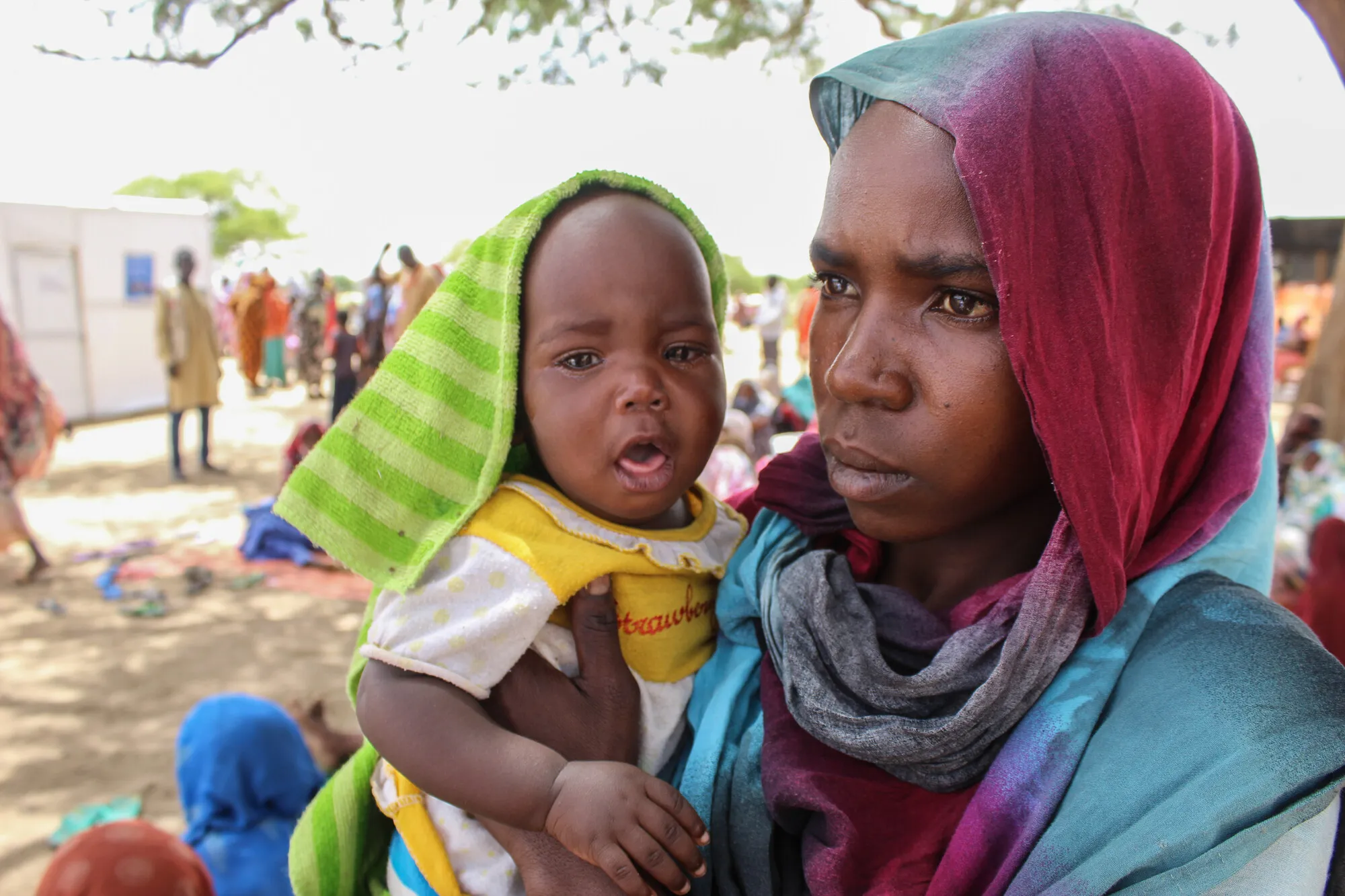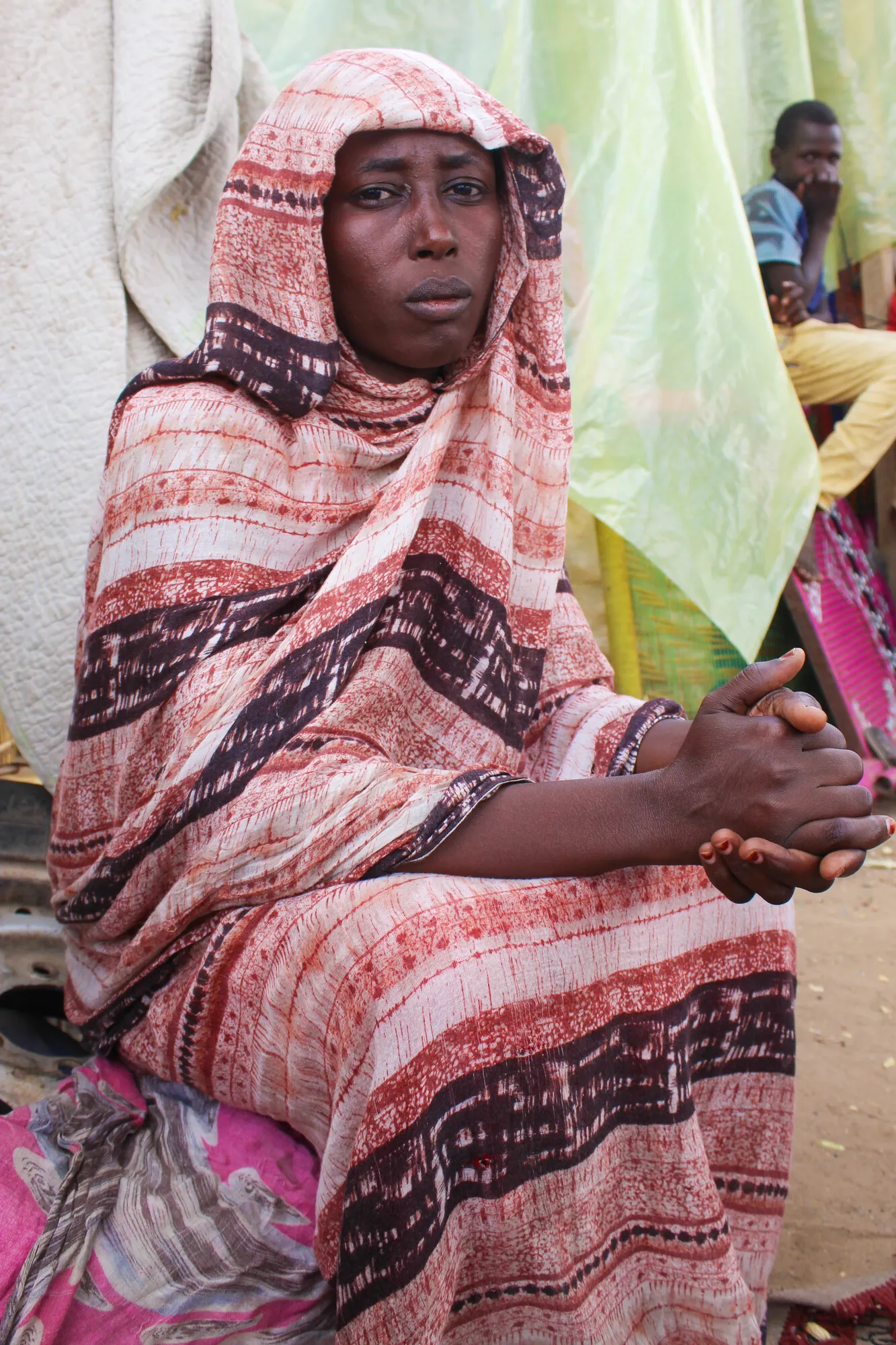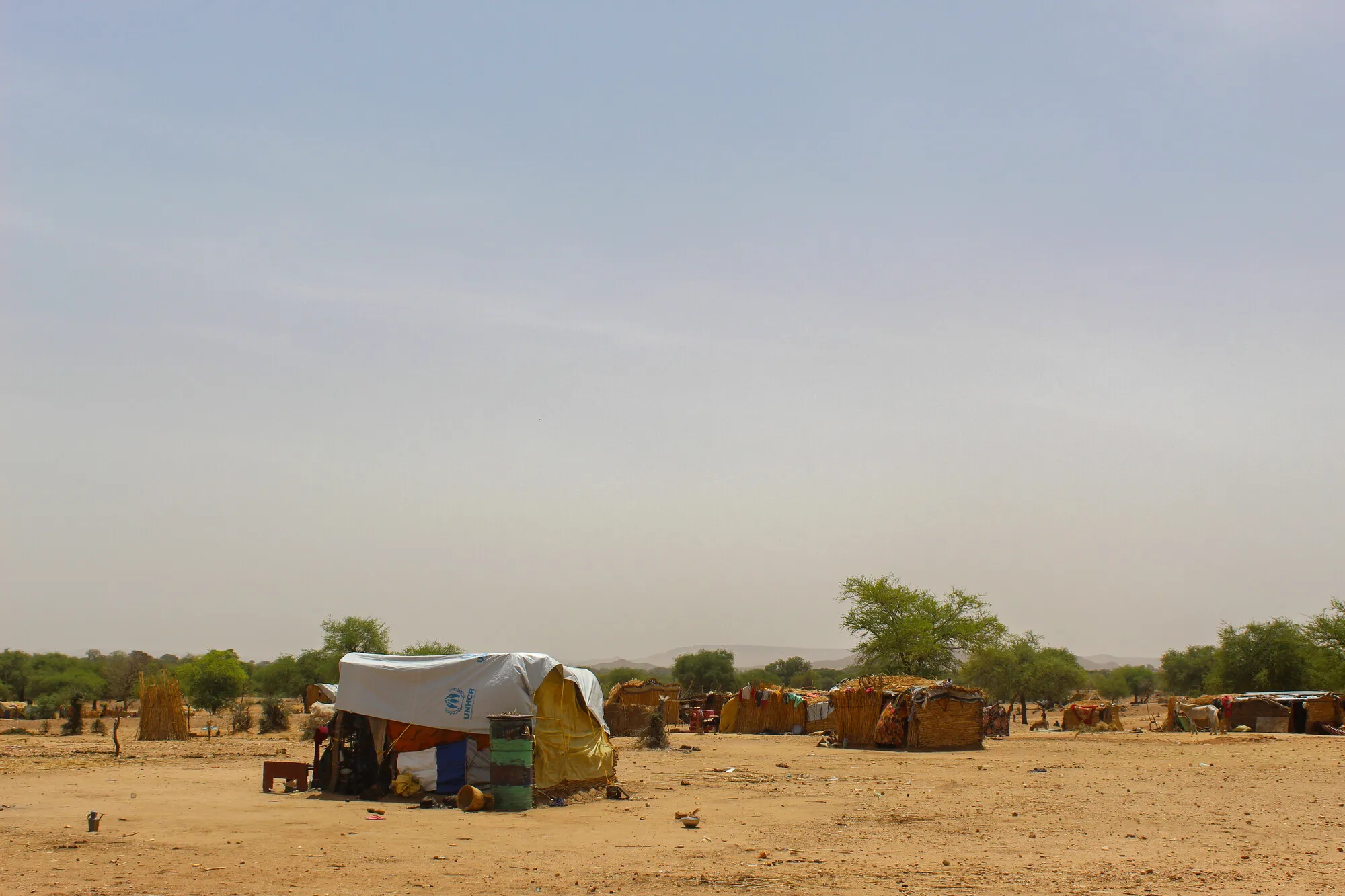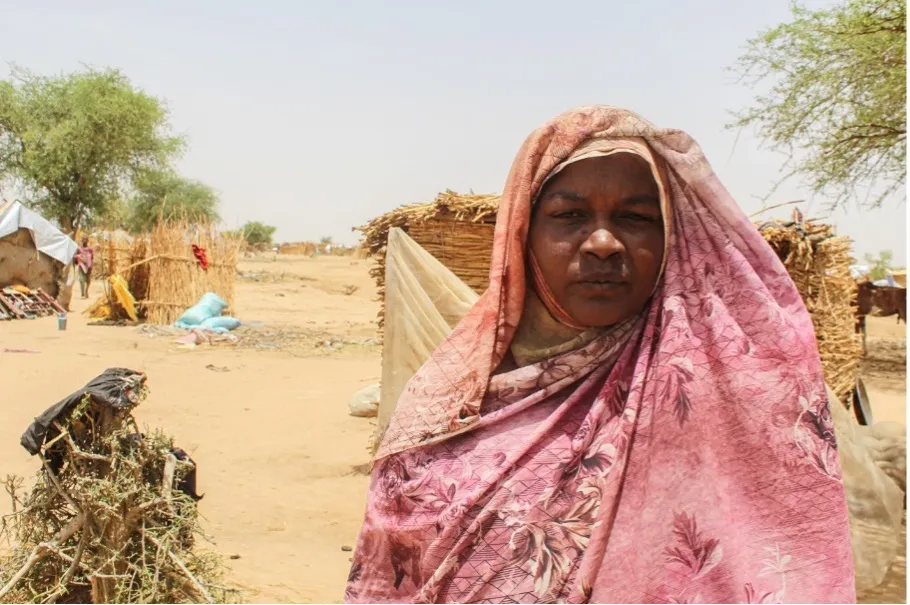A recent Rapid Women and Girls crisis analysis by CARE found that women are going hungrier than men. 42 percent of female-headed households in Sudan are food insecure, compared with 31 percent of male-headed households. Food intake was also 10 percent lower in female-headed households than in male-headed households. And that was before the recent crisis escalated.
Koubra, a 46-year-old mother of six from Darfur, was in Khartoum seeking medical care for one of her children when the fighting broke out. She crossed the border into Chad, but then she was separated from her five other children and husband, who are still in Darfur.
“The conflict broke out when I was in the hospital with my youngest child, who’s eight years old and was sick. We were evacuated from Khartoum to Tiné, a town on the border with Sudan. I have no news of my five other children in our village in Darfur. I think about them all the time.”
“I wanted to cross the border to see if they were still there, but the road is blocked, there is shooting everywhere and yesterday the fighters set fire to the houses on their way.”
Since the conflict began, the CARE Chad team —who were already supporting displaced populations in the country before this current crisis—have been active in the border communities alongside local and international partners. This work has included needs assessments, capacity building, water and sanitation projects, and violence against women and girls campaigns. Humanitarian needs far outpace resources, with the Humanitarian Response Plan only 21 percent funded.





